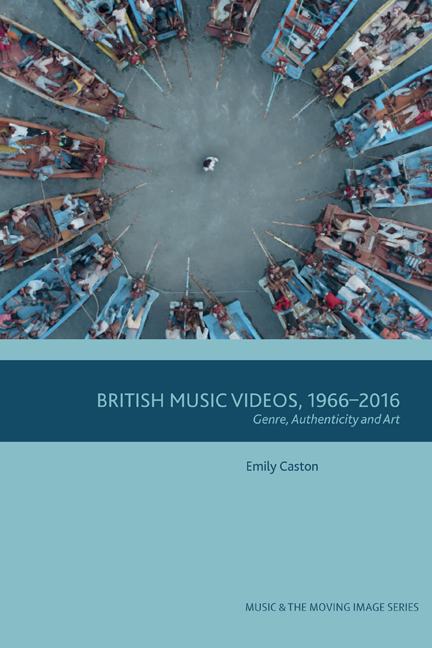Summary
In this chapter I try to develop a theoretical framework for talking about genre that makes sense in relation to the way that music videos have been made and discussed within the British industry since 1966. First I use the loose typology of music videos that has been used in the industry to sketch out a history of the form. Then I move on to examine how the form has drawn on pre-existing genres from the fine arts, film and television, and present examples of genre cycles, parody, pastiche and homage. I discuss the challenges this citational style has generated for authenticity. Finally, I examine the question of whether there has been a correlation between specific music genres and styles of video. By ‘genre’ I mean a type of plot, lighting style, editing style, camera style and iconography (type of location, set design, costume design and make-up), as well as a set of expectations which the video is designed to trigger in the audience by a series of filmic cues, so that the viewer knows what to expect.
The research conducted for this book shows that since the late 1970s British music video has, in the main, been an unashamed and intentional appropriation art. It has been a genre art which succeeds or fails on the extent to which it invokes works from pre-established genres to anchor, authenticate and entertain audiences; genre is a positive, self-aware and intentional act. In director Nick Egan's words,
[y]ou copy. As directors, we copy Fellini and Kubrick and they copy other directors who’ve copied, who’ve copied, who’ve copied. I love paying homage to these directors. I never tried to pretend that the ‘Supersonic’ video was not Nic Roeg's Man Who Fell to Earth and ‘Live Forever’ was not Performance (1970). I’ve never had a problem with that.
The concept of appropriation art was coined in the 1980s art world to describe the advent of the citational style in painting and other mediums. Hoesterey explains that the concept was created to capture the very intentional basis of the appropriation in those artists’ work and avoid the previously negative connotations of the term (Hoesterey 2001: 10).
- Type
- Chapter
- Information
- British Music Videos 1966 – 2016Genre, Authenticity and Art, pp. 18 - 38Publisher: Edinburgh University PressPrint publication year: 2020



